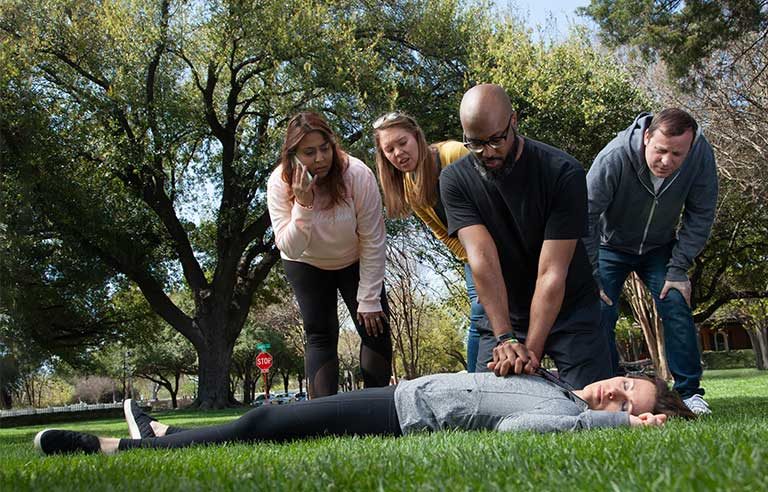Survey shows 40% of adults aren’t willing to perform CPR

If a family member or co-worker went into cardiac arrest, would you be ready to react and deliver CPR?
Results of a recent survey show that although 9 out of 10 people are aware that performing CPR improves a person’s chance of surviving cardiac arrest, 2 out of 5 aren’t comfortable performing the potentially lifesaving technique.
The online survey, commissioned by the American Heart Association, sampled more than 1,000 U.S. adults. A quarter of participants said they would “always” perform CPR to assist someone in need.
As for the 40% of participants who said they wouldn’t perform CPR, lack of training or knowledge was the No. 1 reason why, cited by 60% of the group. That was followed by the fear of hurting someone or facing legal consequences and fear of contracting COVID-19.
Other findings:
- 25% of the respondents said they weren’t aware of Good Samaritan Laws, which offer legal protection to anyone who gives reasonable assistance to someone who is in peril or injured.
- 78% agree that CPR training should be offered at jobsites.
The AHA says more than 350,000 cardiac arrests occur outside of a hospital each year in the United States, and CPR – especially if immediately performed – can double or triple a person’s chance of survival. Additionally, fewer than half of people who experience cardiac arrest outside of a hospital receive CPR.
That’s why, in part, the AHA in 2009 launched a Hands-Only CPR campaign, to teach people two simple steps if a teen or adult suddenly collapses: call 911 and then press hard and fast in the center of the chest.
“The data in this survey shows that most adults understand that CPR saves lives but identifies a real gap in the willingness to actually be the one to deliver the lifesaving assistance, ” Anezi Uzendu, a cardiologist and an AHA volunteer expert, said in a press release.
Post a comment to this article
Safety+Health welcomes comments that promote respectful dialogue. Please stay on topic. Comments that contain personal attacks, profanity or abusive language – or those aggressively promoting products or services – will be removed. We reserve the right to determine which comments violate our comment policy. (Anonymous comments are welcome; merely skip the “name” field in the comment box. An email address is required but will not be included with your comment.)
